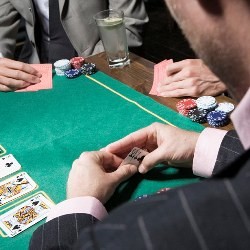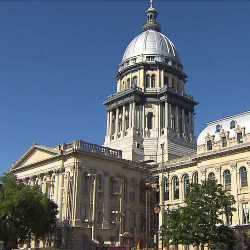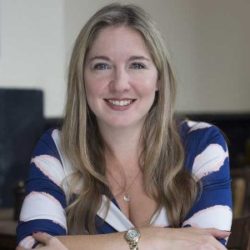The Connection Between Science and Gambling

When you think about gambling, you think of fun and excitement, rather than maths problems and mathematical theory. Still, much of the development of mathematics has been moved forward as a result of gambling, forever linking the two subjects. As UK mathematician Adam Kucharski explains in his book ‘The Perfect Bet: How Science and Math Are Taking the Luck Out of Gambling’:
“From Galileo to Alan Turing, betting has been scientists’ playground for ideas: dice games in sixteenth-century bars gave birth to the theory of probability, and poker to game theory. The line between luck and skill, and between gambling and investing, is rarely as clear as we think.”
Here are six examples of how maths and gambling are connected:
1. Probability
During the 16th century, no one knew exactly how to determine the chances of winning at dice games that were popular during the day. Hoping to profit more from gambling, an Italian physician named Gerolamo Cardano took the time to develop a system for predicting the likelihood of getting certain rolls of the dice. He published his work in a guide for gamblers, unknowingly laying the groundwork for what is now known as the theory of probability, a way of determine the likelihood of an event using math.
2. Expected Value
A 17th-century French aristocrat named Antoine Gombaud was having trouble deciding how winnings should be assigned when making wagers with a friend that involved several rounds of betting. He wanted to find a fair way to determine what the payout should be with bets on things like flipping a coin, so he hired top mathematicians Pierre de Fermat and Blaise Pascal to develop a suitable system. The two subsequently came up with ‘expected value’ to determined what a particular win was worth. Today, their theory is a key part of investing and is used to help investors determine which stocks and other securities to purchase.
3. Statistics
During the 1890s, a French newspaper called Le Monaco published roulette spins from the casinos in Monaco in its pages as part of its regular news coverage. The data was gathered by a mathematician Karl Pearson who needed real life numbers to test some of his theories. Pearson was trying to develop mathematical models that predict the outcome of events which occur at random. His work led to many advancements in statistics, which are now used today for scientific studies in every field.
4. Economic Theory
A popular casino game called the ‘St. Petersburg Lottery’ baffled mathematicians who studied chance during the 18th century. With the game, winnings were doubled each time a player won. Because winning could bring in considerable wealth, it was expected that players would be willing to invest a lot of money and therefore win frequently; however, that was not the case. A mathematician named Daniel Bernouilli developed a theory known as ‘utility’ to explain the behavior of bettors. Simply put, the theory states that a person’s willingness to risk a loss is directly proportional to how much money he has. In other words, a person who only has a little money is very intolerant of risk. Utility is now a driving principle of economic theory and inspired the current credit system.
5. Chaos Theory
Early 20th-century Henri Poincaré used roulette as the focus of his study on making mathematical predictions. He noticed that the number the ball lands in is dependent on
minute differences in the dealer’s spin and speed of the roulette ball. Poincaré’s book on the subject called ‘Science and Method’ layed out the priciples behind ‘sensitive dependence on initial conditions’, and led directly to ‘chaos theory’, which is now used heavily in biology and physics.
6. Game Theory
John von Neumann’s studying of the strategies which were most effective at games like poker and baccarat led to the development of ‘game theory’, which is defied as “the study of mathematical models of conflict and cooperation between intelligent rational decision-makers.” American mathematician John Nash was integral in advancing the theory, and these days game theory is used across a variety of areas, including economics, AI, and biology.
Conclusion
In Kucharski’s book he explains in great detail the connection and shared history between gambling, probability, and applied sciences. One conclusion that becomes quite clear, however, is that there is no such thing as a “perfect bet” whilst gambling at casino slots and table games. As the Ph.D in applied mathematics explains:
“In sport, as in betting, the best teams don’t get it right every time. But they know how to win more often than their opponents.”










